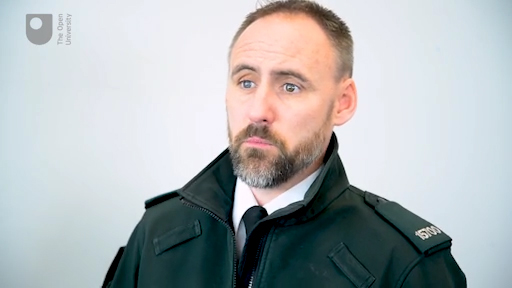3 Leadership in a policing context
Leadership is one of the most important predictors of whether organizations are able to effectively function in dynamic environments … and as such the need for effective police leadership is greater than ever.
Curiously, while much energy and effort has been spent on considering leadership in a range of other contexts, leadership in policing has not been studied to the same extent (Schafer, 2009). One recent study argued that there are seven key characteristics and five key activities which define effective police leadership:
| Characteristics | Ethical behaviour Trustworthiness Legitimacy Being a role model Communication Decision making Critical, creative and strategic thinking ability |
| Activities | Creating a shared vision Engendering organisational commitment Caring for subordinates Driving and managing change Problem solving |
To put this in some context, it is worth considering comments made by Edward Flynn, a former chief of police in Milwaukee, and noted scholar Victoria Herrington, who argue that:
Leaders require a blend of management skills (e.g., planning, organizing, budgeting, staffing and directing), personal skills (e.g. the ability to communicate, motivate and inspire others), leadership skills (e.g., strategic focus, analytical competency and cognitive flexibility), and, in policing, a healthy dose of operational experience. … Leadership requires the organization to support the use of these skills to create a learning environment.
Activity 3 Reflecting on leadership in policing
This activity requires you to watch and reflect on the following video, in which Police Service of Northern Ireland (PSNI) Constable Michael Allen talks about his experience of leadership in a policing context. In the video, he focuses on the following areas:
- What is leadership in a policing context?
- How does this differ from leadership in other contexts?
- What do good police leaders do?
- What do bad police leaders do?
- How can people step up into leadership?

Transcript: Video 1 Constable Michael Allen talks about his experience of leadership
After you have watched the video, take some time to reflect on the points made by Constable Allen. As you do so, consider the following questions:
- Does Constable Allen’s experience of leadership in policing match yours or would you view things quite differently?
- If you’re viewing this clip from a policing point of view, what leadership qualities do you admire in a police or police-staff leader?
- Alternatively, if you’re viewing it from a community point of view, what leadership qualities do you admire in a police or police-staff leader? What could be improved?
Make notes of your observations in the box below.
Discussion
Leadership is a very personal concept. Our individual views of leadership and leaders can differ greatly and very much depend on our experience of the leadership behaviours demonstrated by each person, not just the title or position that they hold.
